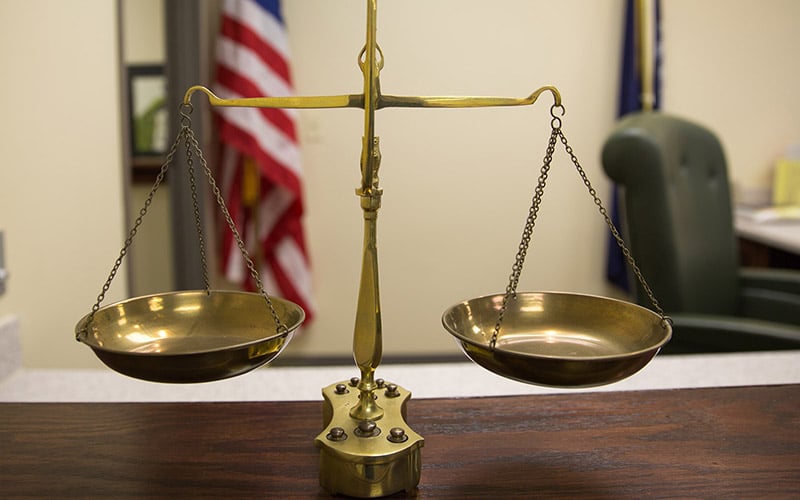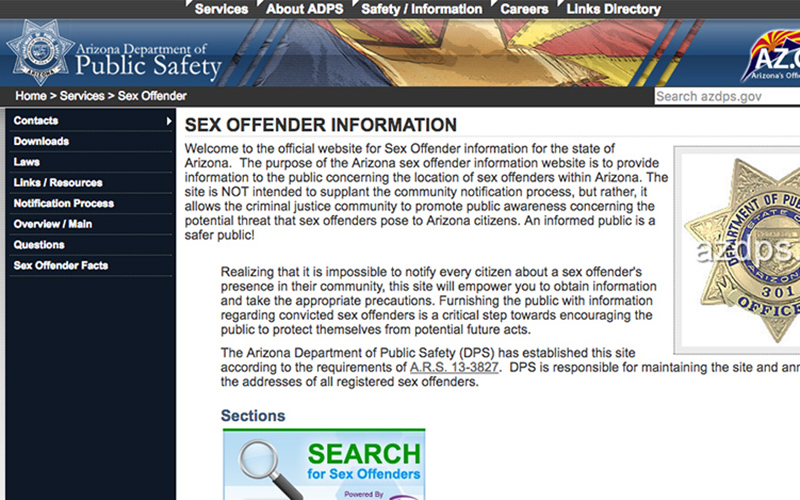
A federal court upheld a Cochise County man’s sex-offender registry conviction, even though the law was passed a year after he was convicted of a sex offense. (Photo by North Charleston/Creative Commons)

Arizona’s sex-offender registry law requires that anyone convicted of a sex offense to register their address with authorities anytime they move. (Photo courtesy Arizona Department of Public Safety)
WASHINGTON – A federal court Friday upheld a Cochise County man’s conviction for failing to register as a sex offender, even though the state’s sex-offender registry law was passed the year after his sexual misconduct conviction.
A three-judge panel of the 9th U.S. Circuit Court of Appeals rejected David Bernard Clark’s argument that applying a law that passed after his crime was an improper ex post facto application.
Circuit Judge Susan P. Graber wrote that the sex-offender registry law was intended not as a punitive measure aimed at offenders, but a protective measure for the community, which means it could be applied.
Clark’s attorney, Sandra Slaton, did not comment on the opinion except to say that they were reviewing it Friday and would decide whether to ask for a review by the full 9th Circuit, or take their appeal to the U.S. Supreme Court.
Clark was 18 in 1982 when he pleaded guilty to having sex with a 14-year-old, a Class 2 felony. He was sentenced to, and completed, four years probation on the charge.
In 1983, as he was on probation, Arizona enacted a sex-offender registration statute, which required anyone convicted of a sex offense to record their address in a statewide registry.
Clark was arrested in December 2009 after moving to Cochise County, and charged with failing to register as a sex offender in compliance with the 1983 law. He pleaded guilty in 2010 to a single charge of failing to register- a Class 4 felony – and was sentenced to 3.5 years in prison.
Clark went to court to challenge his conviction, calling it an unconstitutional ex post facto application. He also argued that the conviction violated his constitutional protection against double jeopardy and violated an Arizona statute that required a defendant to be “punished under the law in effect at the time his or her offense was committed.”
But he was repeatedly rejected by state courts, and the Arizona Supreme Court declined to hear his case.
That sparked a challenge in federal court, where a district court judge said the state courts had acted properly in their rulings. Clark lost another round Friday when the circuit court upheld the district court’s decision.
Clark had argued that the law goes beyond “mere dissemination of factual information” and veers toward public shaming. The state’s online registry “will likely facilitate harassment of registrants, as evidenced by the recent adoption of cyber-stalking and cyber-harassment laws in Arizona.”
But Graber was not swayed, writing that, “Considering all the relevant factors, taken together, that Arizona Court of Appeals was not unreasonable in holding that the statute’s punitive efforts failed to outweigh its regulatory purposes.”